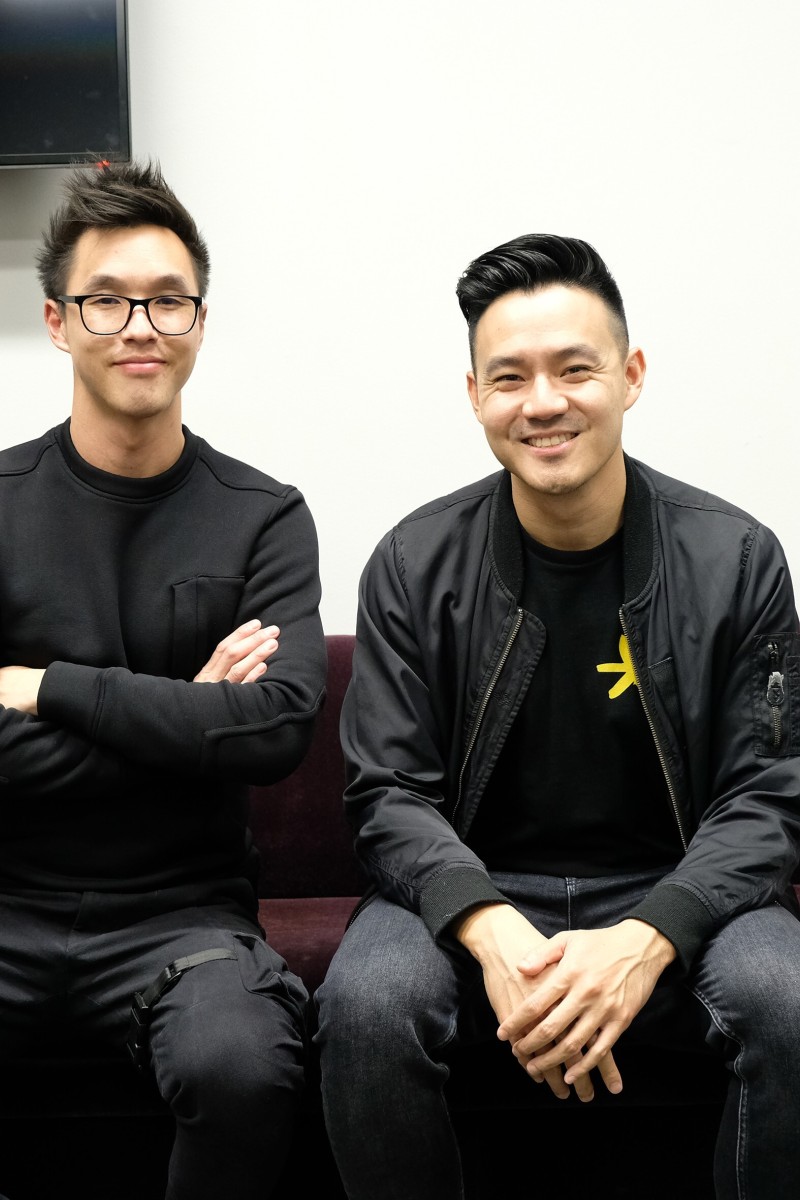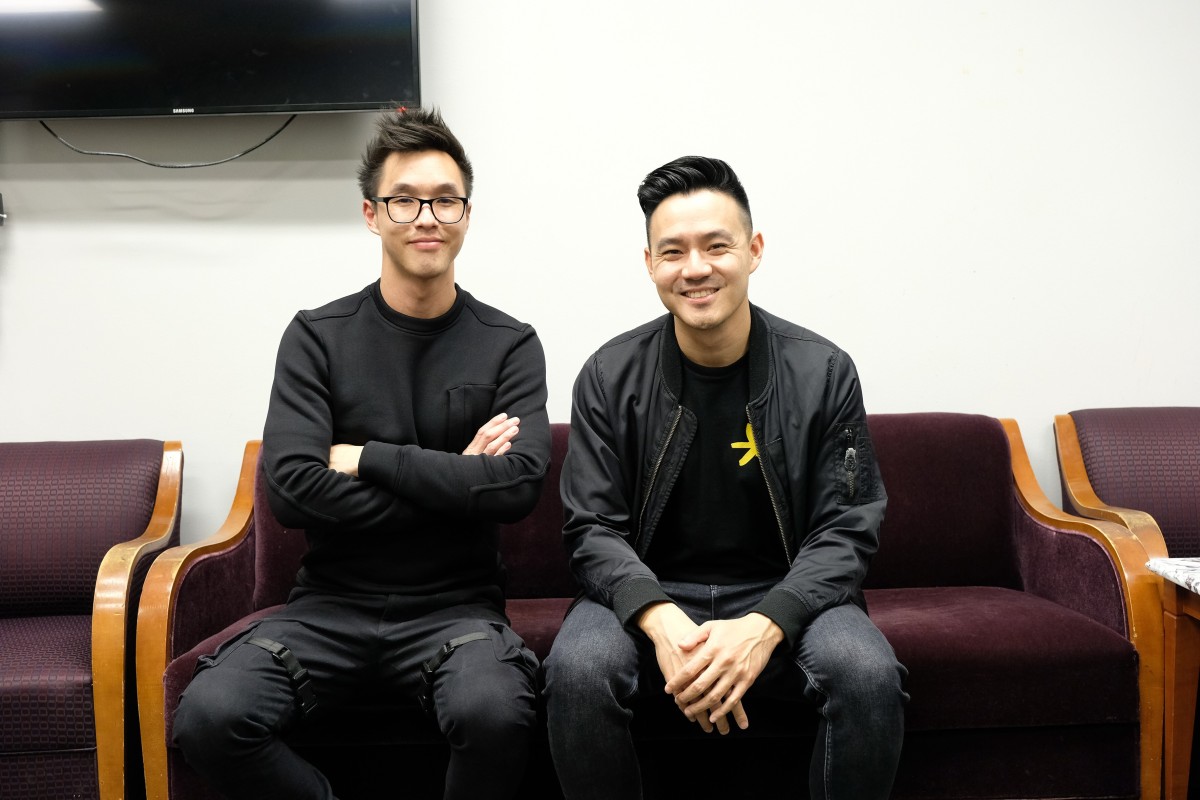
Wong Fu Productions wants Asian-American representation, like in ‘Crazy Rich Asians’, to be the norm, not the exception
- The creators of 'Yappie' and 'Asian Bachelorette' may be famous for comedy, but the group is serious about normalising Asian-Americans in the media
 Chan (left) and Wang are looking forward to seeing more Asian-American-led films in the mainstream media.
Chan (left) and Wang are looking forward to seeing more Asian-American-led films in the mainstream media. 2018 has been a big year for Asian-American representation in Hollywood, thanks to Asian-led films like summer blockbuster Crazy Rich Asians. However, it ought to be remembered that this recognition is more than simply a “moment”.
The push for mainstream representation has been something that Asian Americans have been working on for a long time. Take Wong Fu Productions, for instance: they are one of the most notable names when it comes to representing Asian Americans online.
“[Crazy Rich Asians] is something people can rally behind,” says co-founder Philip Wang. “Every movement needs ammo. My only hope is that it doesn’t end with this one film, and that mainstream outlets, audiences, and even the creators don’t see it as dusting off their hands, like ‘We did our one Asian thing, and now onto the next.’ I really hope it’s continuous. That’s where Wong Fu thrives. We’ve never let off the gas.”
We may be in an era when the entertainment industry is full of buzzwords like “representation” and “diversity”, but Wong Fu Productions has been championing those issues for years. It was created in 2003 by Wang, Wesley Chan and Ted Fu when they were students at the University of California in the US. They now have a YouTube channel with more than 500 videos, three million subscribers, and 500 million views, and have released an independent feature film, as well as several web series – most recently, Yappie.
The term “Yappie” is used to describe a young Asian professional who acts like a yuppie – a term coined in the early 80s for a young working professional. This five-episode YouTube series examines the modern Asian-American experience, such as how the “model minority” stereotype impacts young Asians, how they deal with the disconnects they feel within the Asian community, and how they approach interracial dating.
“This has been the most in-your-face conversational approach at [representing Asian Americans],” says Chan. “By portraying the normal, everyday, Asian-American lifestyle – the one we know, not the ones full of martial arts – we’re normalising being Asian-American.”
“[The concept] is nothing crazy. It’s just about what we go through, but we don’t see that on TV,” adds Wang. “If you see someone Asian on TV, you always have to be [on guard] like ‘oh, this must be the Chinatown episode or something stereotypical.’ In the last couple of years – and in political climate we’re in – when people talk about diversity or political correctness, it’s always like a ‘black or white’ thing. It’s valid but, at the same time, I don’t want Asian people to get left out of the conversation.”
But the pair also believe it’s important for the community to scrutinise its relations with other groups, something that they look at in their work. For example, Wang’s character in Yappie begins dating a mixed-race woman who has black and Japanese heritage. As a result, he starts to examine his own racial biases.
“It’s tough anytime you talk about other communities and cultures, as it relates to Asian culture. The way Asian Americans look at the US is influenced by our parents and the immigrant experience,” says Wang. “I’m not saying the way we’re brought up [is wrong], or that our parents are wrong, but we have a different experience growing up now compared to when our parents came here.” He wants to encourage viewers to examine themselves and how they view the world. “I want Yappie to prompt people to think for the first time, ‘my Asianness has affected how I look at people and treat them.’”
Letters from the dorm: Asians are still being stereotyped in Hollywood – and it’s 2018
Both Chan and Wang are aware of their experiences are not indicative of the Asian-American experience. “We are middle-class East Asians. This is my truth. It’s bad for anyone, even for ourselves, to think that this is the only way Asian people are. We try to be self-aware and [remember] there could be an Asian in Oklahoma who grew up with zero Asian friends, and grew up as the only Asian in the whole entire town. We want to be aware of that when we tell our story,” admits Wang.
Chan hopes, that, regardless of whether or not big films like Crazy Rich Asians are to their taste, people will look at what such releases mean for the Asian-American community.
“We don’t want to encourage people to blindly support [it], but [we need to] understand that a ticket bought will help get the thing you want to see made in the long run.”
The Wong Fu creators add they hope there will be a time when we will see an all-Asian cast in a Hollywood film and accept it as totally normal, and not groundbreaking.
“It’s a [numbers] game. Hundreds of [Hollywood] movies are made every year. How many are coming from Asian-American writers, producers, directors, and how many aren’t?” asks Wang. “Hopefully with ... what Wong Fu Productions and other creators continue to do, we can all inspire each other. We’re all feeling the fire under our butts.
“This is a great time, let’s keep this going and motivate each other so we can have more short films, feature films, series, and books coming from our community ... so we can have success stories,” Wang adds.
“But it can’t just be one pulse every few years. We need little wins along the way.”
Edited by Ginny Wong